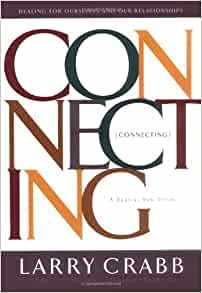Who Do Ya Think You Are?

Who Do Ya Think You Are?
I read a book last week by Brennan Manning. In fact, I began recommending his book to anyone searching for insights about life. “Abba’s Child” has quickly risen to the uppermost percentile of my recommendation list so don’t be surprised if you hear about it again. As you probably surmised from the title, Manning writes from a decidedly Biblical world view, but don’t let that stop you. What Manning does not espouse, is a contemporary, Western, organized-religion image of God, or man.
So, before you reject Manning’s book based on its title, ask yourself, “Is it the God of creation who disgusts me, or is the people who claim to know and speak for Him that get on my very last nerve?” Regardless of your views on religion, creation, humanity, or psychology, I think you’ll find Manning is not another circus barker of the traditional spiel. At a minimum, you’ll be better equipped to haggle with me.
One of Manning’s concepts that I found both fascinating and enlightening is the concept that within each of us, lives an Impostor. He/she is that entity buried deep within our psyche which causes each of us to shade the truth when speaking of our past, embellish our accomplishments, amplify our goodness, and minimize our moral failings — and this is only when we’re speaking to ourselves, never mind those whom we’re out to impress (i.e., the entirety of our relationships).
A Telling Discovery
So, once I had a title for today’s missive in mind, I went looking for an illustration. By the way, don’t reuse the one above because it’s licensed for Editorial Use Only. Using my favorite on-line image reseller, I typed in the search word, “Marionette”, and was greeted with thumbnails of 2,950 images. As I began scrolling through the multitude of images and reading the meta-data, I discovered that marionettes are pervasive in every culture – African, Northern-, Southern-, and Eastern-European, Middle- and Far-Eastern, Asian, Pacific Islanders, South-, Central-, and North-American, Russian, and many more extinct cultures.
One might suppose the sociology lesson here, is that mankind has always been obsessed with creating little replicas of ourselves over which we could play God. One might also deduce that we have always been enamored with creating perfect little façades for the rest of the world to see (“Pay no attention to that man behind the curtain.”) Or one might posit the moral of that story to be that mankind has always simply been a bunch of entertainment junkies, inadequately equipped to relate to anything other than stereotypes.
Modern Marionettes
While I believe all the above observations are true, the one I attach the most weightiness to is the second of three. (I placed it the middle of the trio so you’d automatically see it as the centrist and most reasonable perspective). You think I’m kidding but that’s actually my inner impostor, striving for your approval.
Alas, no longer are we constrained by the unsightly and annoying puppet strings of marionettes; we have technology on our side. I’m not talking about realistic computer animation. I’m talking about Social Media — ostensibly created to help us maintain closer relationships with family and friends, but in reality, a digital marionette platform decorated with smiling selfies, photos of sumptuous meals, lavish vacations, and shiny new toys — an arena in which our Impostor façade is on display 24/7 and in need of more preening and polishing than my first car.
Which Way Now?
Can we honestly hope to forge a culture of equity when we don’t even truly know anything about those around us (or even ourselves) apart from some glossy avatar? Do we simply cater to the outcries of the loudest or do we find a way to engage in honest conversation and mutual understanding? How do we come to a consensus on what constitutes progress when we can no longer even agree on what the letters on the compass mean? How can we begin to assemble a manageable body of objective facts when modern purveyors of information employ AI-driven algorithms to deliver only that which will keep each meticulously profiled reader returning for more silage (truth-be-damned)?
The dilemma is so large, and the odds of success are so minute, we cannot afford to start large. We can only afford to start small. And, by “small”, I don’t mean starting with our city as opposed to our state or with our state as opposed to our country. I don’t even mean starting with our own social groups at work as opposed to entire companies or organizations. I mean starting with that jerk you sit next to in the cubicle, or the one you share a bed with at home. Maybe even the jerk that writes this article.
But it has to start with YOU. It cannot start with me because the Impostor inside my head says there’s nothing wrong with me. So, maybe you buy me coffee instead of the other way round and we engage in some “constructive confrontation” wherein we devote ourselves to diplomatic but unrestrained honesty, and the adamant pursuit of victory over the Impostor inside each of us.
Once we get me fixed, we can tag-team the rest of the jerks you know.
 Email me at guy@lawsoncomm.com so we can talk face-to-face about stuff that matters. Who knows, we might even become friends and build on each others’ experience.
Email me at guy@lawsoncomm.com so we can talk face-to-face about stuff that matters. Who knows, we might even become friends and build on each others’ experience.
 The problem with quotations on the internet is that it can be difficult to verify their authenticity.
The problem with quotations on the internet is that it can be difficult to verify their authenticity.
— Socrates


Did someone forward this newsletter to you after reading it themselves? Don’t settle for that!
CLICK HERE
to get a fresh, unused copy of this newsletter sent directly to you every Sunday morning. If you decide it stinks, you can always unsubscribe.

Neuroplasticity
— Moheb Costandi
This is no self-help book. It is a raw information dump about the brain, how it grows, and how it works. The book is one among a fascinating series of publications from the MIT Press Essential Knowledge Series. Not light reading but it will leave you in awe about what’s going on inside your head.
Connecting
— Larry Crabb
The first obstacle to having an honest conversation with ourselves is, well, ourselves. It’s weird that the key to honestly communicating with ourselves is having another, objective individual to bounce things off of. Larry Crabb is the master of facilitating those honest, open, indispensable relationships.













